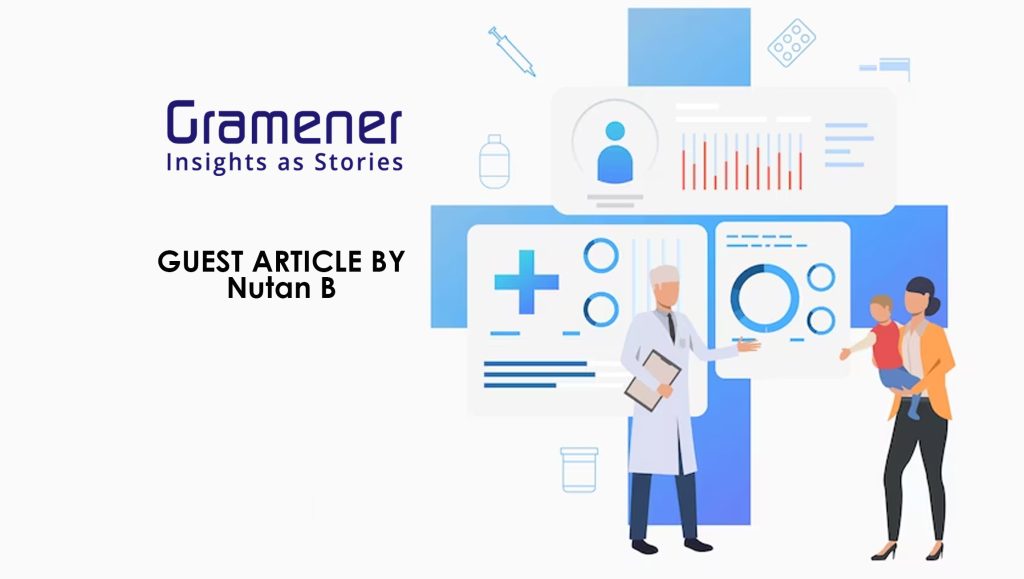Sales and marketing play a critical role in driving revenue for the pharma industry, which explains why pharma companies spent $6 billion on marketing in the US alone. Despite this investment, they still struggle with increasing sales.
This challenge arises due to several reasons. For starters, the industry is highly regulated, with the FDA approving 53 novel drugs in 2020 alone, ingrained transactional habits, and the critical nature of the products. Second, fierce competition has intensified, especially with generic drugs accounting for about 90% of all prescription drug purchases in the US.
A data-driven sales strategy can present a solution to these issues. Simply put, a data-powered approach enables pharma organizations to collect, analyze, and interpret critical data. Its main objective is to turn raw data into actionable insights, streamline business operations, and improve performance. How does this help companies boost sales? Let’s dive in.
Gain Deeper Insights Into the Market
Through monitoring prescription patterns and patient preferences, pharma companies can identify emerging trends and unmet medical needs within the market. This proactive approach also helps them adapt their marketing and sales strategies to align with current trends, ensuring that their products remain relevant and in demand.
Additionally, pharma companies can benchmark their products against those of competitors. Suppose a competitor launches a new product with superior features. In that case, the company can respond strategically, either by enhancing its existing products or by introducing innovative alternatives to maintain a competitive edge.
Competitive analysis also enables pharma companies to understand the position of their products in the market when it comes to pricing and value. Depending on the positioning goals, businesses can adjust their pricing strategies and demonstrate value for money or premium quality.
Read More: SalesTechStar Interview with Aaron Lee, CEO at Smith.ai
Personalize Your Sales Strategies
Data-driven sales strategies enable pharmaceutical companies to personalize their approaches in numerous ways.
For example, they assist pharma companies in segmenting their customer base depending on various criteria, such as prescribing patterns, preferences, and engagement history. If data analysis reveals that a group of physicians tends to prescribe a specific class of drugs more frequently, the sales team can personalize their presentations and materials to focus on the features and benefits most relevant to that group.
Furthermore, pharma organizations collect data from various sources, including sales records,
customer relationship management (CRM) systems, and external databases. This way, they can gather demographic information about healthcare professionals, such as specialty and geographic location.
Armed with these valuable insights, they can understand regional variations in healthcare practices and adapt their marketing and distribution strategies accordingly. Alternatively, they can develop educational materials and programs that address specific requirements, such as regulatory compliance and different specialties. This ensures that healthcare professionals are well-informed about the products and their usage.
Improve Sales Training
Utilizing a data-centric methodology in sales training can boost the efficiency and effectiveness of the training endeavors of pharma businesses.
For instance, leveraging sales performance data allows these companies to identify areas requiring improvement within the sales team—whether they are conversion rates, call success rates, or the effectiveness of product messaging. By pinpointing specific areas of growth, training programs can be designed to address these gaps.
As an alternative, pharma organizations can embrace a dynamic approach by incorporating real-world scenarios and simulations based on historical data into training programs. This allows sales representatives to practice handling situations they are likely to encounter, which improves their readiness and adaptability in the field.
Best Practices for a More Effective Data-Strategy
First and foremost, pharma companies need to foster collaboration between different departments to maximize data effectiveness.
The reason is that pharma companies might have teams in different regions, each having distinct goals, priorities, and IT budgets, making it hard to establish a centralized data system and leading to data silos. Consequently, various groups in the same organization struggle to easily or fully access data. By encouraging cross-functional collaboration, pharma companies can break down data silos and get better insights that will help them increase sales.
What’s more, it is important to regularly clean data to ensure that decisions are based on reliable information. To do that, organizations can define data quality metrics and key performance indicators (KPIs) to measure the accuracy, completeness, and timeliness of data. And scheduling regular data audits can help them identify and correct errors, inconsistencies, and outdated information. When the sales team operates with accurate and up-to-date information, they can be more productive, focus on high-potential leads and opportunities—and ultimately—drive sales growth.
Wrapping up, in the pharmaceutical industry, where regulations are stringent and competition is fierce, companies find it challenging to increase sales. However, embracing data-driven sales strategies can provide companies with a competitive edge. By fostering a deeper understanding of current trends, personalizing sales techniques, and refining overall sales strategies, pharma businesses can increase sales and position themselves for success in the market.




















